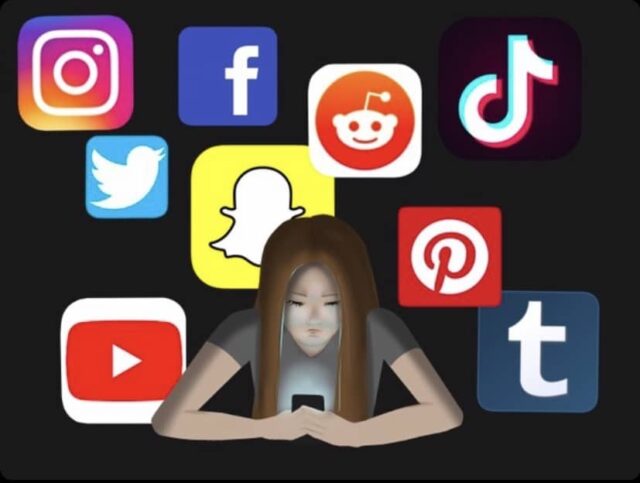Mental health has been a matter of great discussion in recent times. And when it comes to dealing with widely discussed subjects, social media has always been ahead in its job.
Every now and then while scrolling through Instagram we come across posts saying things like “Keep calm and take a deep breath”, that promote self-care and spread ‘positivity’.

Although well-meant, the idea of social media therapy has its own set of cons and may not create the positive effect that popular culture has on you to believe. Let us see why.
Mostly Random And Out Of Context
While psychological therapy is a process carried out by certified practitioners, social media posts giving a therapeutic effect are mostly created by random people.
The ideal way of providing therapy is always to talk to the patients, know their stories, understand their problems, and then provide solutions accordingly. Social media therapy on the other hand is completely the opposite.
They appear suddenly with messages like “If you’re seeing this, slow down and relax”. Such posts are not only random and out of context but also give directions that are often wrong. What if someone is just lazy and has a tendency to procrastinate? Such people will just be encouraged to continue with their casual attitude.
Since they immediately draw one’s attention and don’t have a specific target audience, they can be followed by anyone and everyone coming across the post.
Promotes Fake Positivity
We often come across random influencers and self-proclaimed life coaches with no background in psychology who ask us to smile every day and spread ‘positivity’ on social media.
While there is no harm in staying upbeat and having an optimistic attitude towards life, the pressure to mask your emotions with a plastic smile when you really have serious problems is pretty toxic!
Such ideas often ignore realities like trauma and encourage people to trivialize their problems instead of finding solutions to them. And c’mon if you need a social media post to remind you that you need to smile today then it’s seriously a problem that needs to be dealt with!
Also Read: Are Millenials Falling Prey To Trauma Bonding?
Divija Bhasin, a social media influencer and counseling psychologist based in Delhi, has been posting Instagram reels and videos for over a year. Bhasin, who holds a double master’s degree in psychology, creates content about mental health.
In her series ‘Psychologist’s Review of Reels,’ she exposes content creators who propagate false information about mental health conditions including OCD and depression.
“There is too much wrong information on mental wellness. Most of them focus on smiling every day and being happy as cures to serious mental health issues. While they could be helpful, they are not going to cure anything,” says the 24-year-old. She urges that one needs to spot the difference between content that is positive and one that promotes toxic positivity.
Creates A Victim Mindset And Unhealthy Validation
Posts on social media dedicated to mental health mostly promote self-centeredness in the name of self-care. They hardly speak about the importance of empathy and understanding the other side.
At times when someone faces a mental breakdown, it’s probably because of some blunder caused by the person himself but social media therapy often shifts this burden of guilt into other people. This creates a victim mindset and a victim’s mind always looks for a villain to blame!
Suppose you are facing relationship issues. Social media would never suggest you to adjust with your partner or mend the relationship. Instead, it will label it as a toxic relationship and urge you to move on.
In the name of self-love, it encourages us to ignore and often flaunt our flaws instead of working towards improvement.
How many times have you been confused or misguided by such ‘positive’ quotes? Tell us in the comments down below!
Sources: Psychology Today, Times Of India +more
Image Source: Google Images
Connect with the blogger: @ParomaDey
This post is tagged under mental health, social media, Facebook, Instagram, therapy, positivity, fake positivity, Divija Bhasin, mental breakdown, anxiety, depression, OCD, toxic relationship